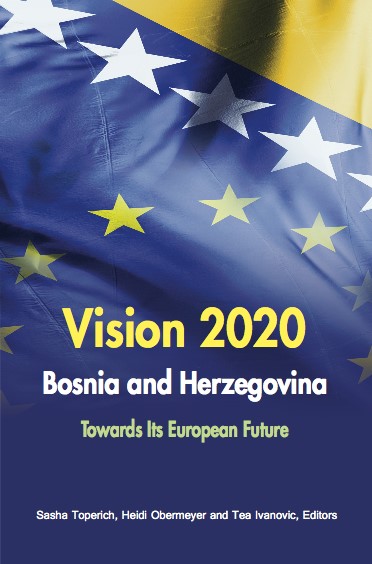As President George W. Bush prepares to travel to Europe next week, many commentators are asking what his administration could bring to the table to help revitalise the transatlantic relationship. We believe the president should build on the good feeling generated by Condoleezza Rice, his secretary of state, during her tour of the continent last week and make it clear that America is comfortable with European integration. While in Europe, Mr Bush should launch a strategic partnership with the European Union to complement the Nato alliance.
There are three reasons why the president should do this. First, the kind of political, economic and material support the US most needs from its European allies is increasingly likely to come from the EU rather than Nato. Nato will remain America’s most important military alliance but it is in this area that the US is least in need of help. On a wide range of other critical issues—Iraq, the Middle East, Russia, and co-ordinating humanitarian and disaster relief—it is the EU that can best provide what America needs.
Nowhere is this truer than in the war on terror—the administration’s top priority and the biggest security challenge facing the US. Areas that are vital in this struggle—trade, sanctions, foreign and humanitarian assistance—increasingly fall under the remit of an integrating EU. The EU is also the place where Europeans are co-ordinating their policies on domestic security, the promotion of democracy, police work, intelligence and immigration.
Second, against this backdrop it is clear that America’s real problem with Europe today is not that it is too strong and assertive but that it is too weak and inward-looking. If the US wants a genuine partner able to help it meet the new challenges it faces around the world, it needs to support a stronger and more integrated EU. So long as most EU governments continue to believe in the value of US leadership, a unified EU is likely to side with the US on critical issues, providing more political legitimacy and material support than any patchwork coalition could.
Finally, Americans need to understand and accept the reality that even the most Atlanticist leaders and countries are also committed to the EU’s success. This is as true for Tony Blair as it is for Poland’s Aleksander Kwas niewksi. For the US to oppose European aspirations to come together in the EU is strategically shortsighted and politically counter-productive.
For the past four years, Washington has mismanaged its efforts to shape the European future. Uncomfortable with the compromises inherent in alliances and international institutions, the Bush administration focused in its first term on “key allies” and “coalitions of the willing”, often trying to divide Europe between “new” and “old”. Although this approach maximised flexibility, its many downsides have now become apparent. Far from creating a broad and thus durable coalition, an increasingly unpopular US is bearing the overwhelming share of global security burdens.
Some Americans worry that the EU, or at least some of its members, harbour ambitions of becoming a counterweight to US power. Those concerns are legitimate, but the best way to address them is to embrace the EU and empower the Atlanticists within it. A successful EU will not mean the emergence of a military competitor. It requires a leap of the imagination to conceive of issues or areas in which the EU might act militarily against US interests. Current EU missions—such as those already initiated in Bosnia, Macedonia, and the Congo—are in areas where the US was reluctant to get involved and should be welcomed, not feared.
Mr Bush’s upcoming trip to Europe is the right occasion to initiate this shift in America’s approach. A strategic partnership with the EU would be welcomed by Europe’s Atlanticists, while those who have championed an anti-American approach would face the choice of joining a rapprochement with Washington or being isolated within the EU. Transatlantic differences would of course not magically disappear. But an American embrace of the EU would help start a new positive dynamic as Mr Bush begins his second term. The world’s two richest, most democratic and most powerful entities could then get on with the vast global agenda that awaits them.






